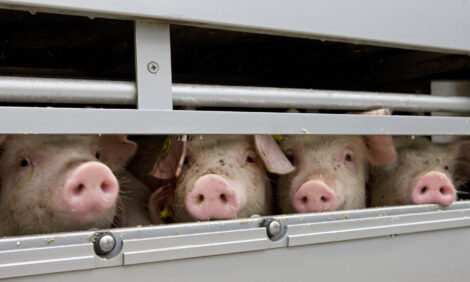



Pork Profits Belie Need For Market Structure Changes
WASHINGTON, D.C. - “Is legislation that would limit [pork] producers’ market-access options a solution in search of a problem?“ That’s the question the National Pork Producers Council asked yesterday of a congressional panel looking at how livestock are bought and sold.There are several bills pending in Congress that could adversely affect pork producers’ ability to market their hogs, including a ban on meat packers using contract growers and a requirement that packers buy at least 25 percent of their pigs on the so-called spot market.
“Punitive actions against packers do not necessarily benefit pork producers in the long run unless the packers are clearly in the wrong,” NPPC past President Joy Philippi, a pork producer from Bruning, Neb., told the House Agriculture Subcommittee on Livestock, Dairy and Poultry. “We have seen no evidence of this, and Congress must proceed with caution, weighing the costs and benefits of such important public-policy decisions.”
NPPC pointed out that while the structures of the U.S. pork industry and pork and hog markets have changed over the past 10 years, pork producers have enjoyed “unparalleled prosperity” over the past three years, recording 35 consecutive months of profitability through December 2006 with an average profit of $22.17 per head over that period, according to data from Iowa State University.
It also said that significant taxpayer dollars have been invested in researching competition in the livestock markets but that USDA and the livestock industry have not had time to digest and consider any findings. NPPC urged lawmakers concerned about competition and concentration in the livestock industry to look at transactions rather structures to determine if markets are working.
A recent study of livestock markets conducted by USDA’s Grain Inspection, Packers, and Stockyards Administration found that eliminating or mandating a particular marketing or pricing mechanism would make producers and consumers worse off.
“In the areas of competition and industry structure,” Philippi told the livestock subcommittee, “there are a number of pending proposals that will have an adverse impact on pork producers and will give little benefit to anyone.”








